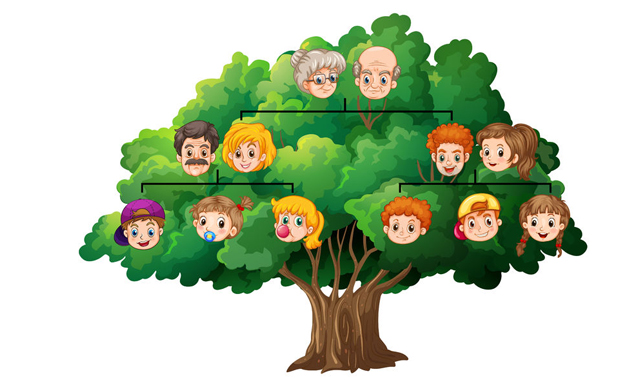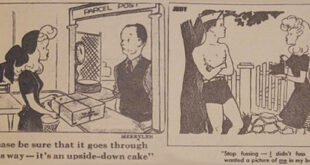I grew up, as I’m sure many of you did, with a lot of Italian relatives who married into your family line, but some were a little different. There might be a godmother who doesn’t quite connect to the tree or folks who we call our “uncles” and “aunts,” but were they really related? “Who was Cooma Micheline? Is she a cousin of Nonna?” Nobody seemed to remember. More on them later. For now, let’s focus on actual branches, however tenuously connected to the trunk.
The relatives who married in Italy typically are from the same town, or from towns near to each other. Once they moved to Chicago, however, there was the chance that someone from another town or province in Italy married your aunt or cousin. Once they were outside of Italy and had the world, so to speak, from which to choose a mate, they didn’t always choose the guy that dad picked for them!
You may look at your family tree and discover, as I have, that quite a few of the Italian-born relatives who married in Chicago ended up marrying non-Italians. I was surprised by this. I thought that they would seek out other families from their ancestral town and marry someone who they might have ended up marrying if they had stayed in Italy. I can’t speak for other cities but Chicago has a unique geography that helps explain this phenomenon. The “Little Italies” of Chicago were clustered usually around the Italian Catholic churches, and due to so many other Catholic ethnic groups in Chicago, there was a good chance that, say, a Polish neighborhood would be very close to an Italian neighborhood, usually within walking distance, and it would be easy for someone to see people who didn’t all look like the girls from the motherland. This, of course, worked the other direction as well!
So we’ve tripped over A) a bunch of miscellaneous Italians who are related to your family by marriage but are from elsewhere in Italy; and B) a bunch of miscellaneous non-Italians who married into the family, bringing their ethnic traditions to your family events. Where did all these people come from?
As you are working on your family tree, you find Zio Vitucc’ and you check your records for your family’s ancestral town, and after you check them thoroughly, you realize that Zio Vitucc’ didn’t come from the same town in Italy. So how do you find out where he came from?
Obviously, you ask your cousins who are Vito’s kids. But that’s cheating! And half the time, they don’t know either! (I’m genuinely saddened at how many Italians know so little about their ancestral towns, and it’s not just Italians either! A lot of folks all come from big cities like Warsaw, Moscow, Rome, (which they usually don’t!) and that’s as much as you’ll learn from the relatives.
Thanks to good ol’ familysearch.org, we have more ways to determine where Zio Vitucc’ and Auntie Zofie and godmother Cooma Micheline came from.
Obviously we can search for the family in the census. This can be done on many websites, including ancestry.com, myheritage.com, the National Archives (1940census.archives.gov), findmypast, and fold3 among others. The census will give you a basic birthplace, usually only the state if born in the U.S., or the nation if born overseas. I try to find them as adults first. Then I try to find them as children in an earlier census in order to find their parents and where THEY are from.
If the relative you’re looking for was born in Illinois, you can try to find them on familysearch in order to get the precise city and date they were born in. You may have trouble finding them using the spelling of the last name, which was frequently being spoken by a foreign-born midwife and ended up misspelled. Some birth certificates don’t even have the first name on them as well, so when you search for Lillian Wozolek, you may come up empty. This is where the parents’ names are so important. If you can find them from the census, from newspaper death notices, or from living relatives, you have a much better chance of finding your chosen person in familysearch. Just leave the first and last names blank, click “Parents” and search for them. Sometimes I search only for their first names. So a search for Wojciech and Anna might bring up other family names, but I have a better chance of finding Lillian Wazlok (note the awful spelling!)
If you’re back looking for Zio Vitucc’ and the census says he was born in Italy as expected, you should try to find him with familysearch by searching “Immigration and Naturalization.” Hopefully he became a U.S. citizen and there will be a naturalization card in the index. This process should be familiar to you from previous columns. Record all the information on the card, especially the petition number and the court name. US District court records are federal. You can find the copy of the record at https://www.familysearch.org/search/catalog/2212212?availability=Family%20History%20Library Just scroll down the catalog entry until you find the range of petition numbers that includes the one you found on the card. Once you see all those images, you can use the petition number to jump to a higher or lower petition until you find it. Download the pages that list Zio Vitucc’ and you find Vito Rizzi!
And if you’re still wondering about Cooma Micheline, well her family lived in the same building as my great-grandparents for a few years, and her children grew up together with my grandfather and his siblings and some of their kids. They were not related but ended up so close that our families merged together.
Please send any questions to Dan at italianroots@comcast.net and please put “Fra Noi” in the subject.
 Fra Noi Embrace Your Inner Italian
Fra Noi Embrace Your Inner Italian







